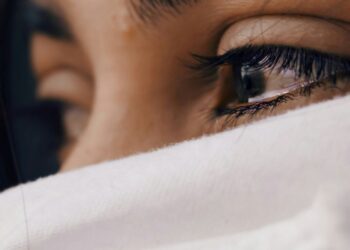It’s proven that spring cleaning can help you feel more organised, satisfied and less stressed. Here’s how to do it in an environmentally-friendly way

Nothing says spring quite like flinging open the windows, letting fresh air in and doing a thorough deep clean. Don’t write this off as an old-fashioned tradition — it’s a great opportunity to clear your space, declutter and ensure the products you use in the home aren’t toxic to you, your family or the environment.
Environmentally-friendly products
A good place to start is knowing what cleaning products to use. Purchasing non-toxic products is an excellent way to help the environment. You may not realise it, but all those cleaning products that are washed down the kitchen sink will end up in nature, so it is best to limit the amount of chemicals you use. Non-toxic products can be found in any supermarket from brands like Ecover or Lilly’s.
Alternatively, if you want to create your own cleaning products at home you can find lots of recipes online. Simple ingredients like baking soda, vinegar or lemon juice can be used in different ways as great alternatives to stain removers and cleaning products. Likewise, instead of using an endless amount of kitchen roll, try using old pieces of fabric or towels on your surfaces. This helps reduce the amount of paper waste in your home and you will get extra use out of old materials that will most likely never be used again.
Help avoid allergens
When dusting your home, remember to dust your air vents too. This will help reduce the amount of pollen and bacteria in your home. It will also help reduce exposure to allergens for your family especially in the upcoming months when the weather starts to improve.
Even simple tactics like remembering to clean from the ceiling down makes a difference. That way, it forces debris downwards and you won’t have to re-dust or re-clean areas as you go.
Embrace your dishwasher
Your dishwasher isn’t just for your plates and cups! You can give lots of items a thorough deep clean quite easily. Children’s toys made of hard plastics such as building blocks, kitchen tools like scrubbing brushes and bathroom accessories will be like new after a run through the dishwasher, and it will save you having to scrub pieces by hand. Looking after all of your possessions well will mean you have to replace them less often.
Mend rather than replace
Think twice about making a new purchase, and see if you can mend or repair a broken or damaged item in your home. We have gotten out of the habit of looking after our belongings, but taking time to care for them will extend their lifespan, saving us money and reducing waste. Get to know your local cobbler who can help ensure your shoes last longer, find a seamstress who can sort out dodgy hems, or try learning to sew yourself.
Give up clothes for good campaign
Donating clothes to charities is one of the best ways to help achieve a sustainable spring clean. This month, radio star Baz Ashmawy is encouraging people to donate their once loved clothing to their local TK Maxx store, to raise money for Enable Ireland, a charity supporting children and adults with disabilities. Donated items will be sold in Enable Ireland charity shops to raise money to fund disability services, and each bag of donated items could raise up to €20 for the charity. Find out more here.
Renew tired textiles
Have clothes that are too worn to donate, or old and tired bed linen? It is possible to recycle old textiles.
If you’re concerned that your unwanted clothing or linens won’t sell at a charity shop, and are at risk of ending up in landfill anyway despite your best intentions, check out H&M’s recycling service.
H&M has offered a garment collecting and recycling service across all stores since 2013. Unwanted clothing and textiles by any brand and in any condition can be donated at a H&M store. In return you will receive a €5 voucher to spend in store or online to use towards a purchase worth €25 or more.
All textiles donated to H&M in Ireland is sent to their recycling partners I:CO in Germany, to be reused to make new products, reworn or recycled into textile fibres to make new materials, with 0% going to landfill.
Do your research
While donating is pretty simple, do ensure your chosen charity is open to receiving your unwanted goods. For example, some shops might not accept clothes, others might not accept furniture. Policies differ at different shops. Here are a few to check out:
- Enable Ireland
- Oxfam Ireland
- Dublin Simon Community
- Irish Cancer Society
- The Dundrum Village Charity Shop, in aid of Women’s Aid.







